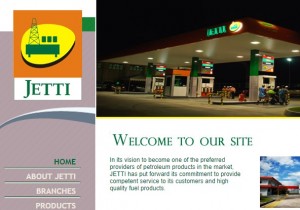Jetti increases investment in Bataan terminal to P1.5B
Independent oil player Jetti Petroleum Inc. (Jetti) is shelling out more cash to expand its depot at the Bataan bulk terminal.
Jetti said it increased its investment from P1 billion to P1.5 billion for Phase 2 of Jetti’s depot in Mariveles, Bataan.
The development will add 1.5 hectares to its existing 2-hectare development, bringing to a total of 3.5 hectares its current landholding in the area.
“The idea of a Phase 2 was conceived in order to maximize the usable land area of the property,” said Leo Bellas, Jetti corporate affairs manager. “By expanding our holdings, we now have the capability to add more storage tanks to meet the growing market need for quality fuels in Luzon.”
Bellas also noted that Phase 2 could accommodate additional storage tanks of varying sizes, totaling about 60 million liters in combined fuel capacity.
“Although the primary direction is to construct the Phase 2 storage tanks, once Phase 1 storage capacity is deemed insufficient, the company will likewise be looking at expanding by way of other potential related businesses,” Bellas said.
The essential and critical stages of Phase 2 of the project is currently being done and integrated in the Phase 1 construction of the terminal.
The first phase is said to have a total storage capacity of almost 70 million liters.
The additional work being done will push the completion and commercial operation of the terminal to within the first quarter of 2015.
With the Bataan Bulk Terminal, the company will have the logistics capability to cater to the rising demand for diesel, motor gasoline products, and bunker fuel oil in Luzon, including the possible storage and supply of bioethanol and aviation fuel needs in the region.
The Bataan depot will be Jetti’s second import facility next to the Tagoloan bulk terminal. It will serve the product requirements of Luzon. Thus, the company will no longer have to transport fuel from Tagoloan to the said region.
The company expects savings on operational expenses, the benefits of which, according to Bellas, will be passed on to consumers.

